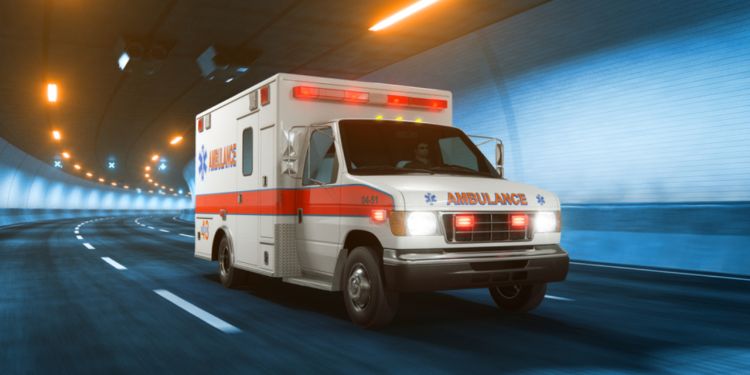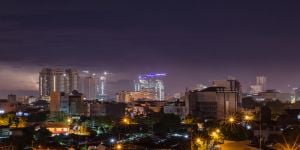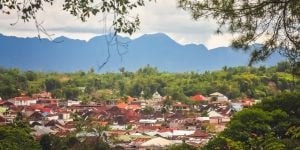
Medical emergencies or accidents are always difficult to deal with when you are in a foreign country, especially if it is a risk-prone one like Indonesia. If you are an expatriate in Indonesia or thinking of moving there, here are some tips on what to do in the event of a problem.
Indonesia is undergoing multiple transitions, be they political, economic, or social. One such transition concerns the medical system, which has undergone a lot of changes since the fall of the authoritarian regime that ruled the country until 1989. Nowadays, the Indonesian health system is highly modernized, but it is not yet at the level of neighboring countries known for their excellent medical services, such as Malaysia.
Moreover, there are real disparities between regions, with rural areas being significantly less well served than large urban centers, in terms of medical and hospital facilities. Therefore, if you have an accident or an emergency and are in an urban area, you should have no trouble getting help (ambulance, fire department, police), whereas in remote areas you could find yourself in bitter trouble.
Medical emergencies in Indonesia
The universal number for emergencies in Indonesia is 112. In case of problem, an operator will dispatch help, whether it is an ambulance, the police, or the fire department. However, as far as ambulance services are concerned, be aware that they are not readily available everywhere in Indonesia. The countryside and remote rural areas are generally not or minimally underserved by ambulances, due to the often impassable roads and difficult access to the most remote areas.
Some villages have health clinics that can provide basic care and first aid, but this is not the case everywhere. If you are traveling far from urban areas, be sure to find out what medical services are available in the area before your trip, as this could save your life in case of a serious problem. A chopper can also be sent to your rescue, but this can prove to be extremely expensive if your insurance does not cover this service. Locals are generally helpful and understanding and will even offer to transport injured or sick people to the nearest medical facility, depending on the severity of the situation.
Health insurance in Indonesia
A health and accident insurance is vital for any foreigner residing in Indonesia, and is one of the conditions attached to obtaining a visa for Indonesia. Think of taking out an insurance policy that covers the use of a rescue helicopter just in case you should run into a problem far from civilization.
Prior to 1997, there was no proper social security regime in Indonesia. This problem has been made a priority by the current government, which is seeking to provide medical coverage for the entire population. There has been some progress in this area recently and as a result, if you work in Indonesia, you should be automatically covered by healthcare insurance.
Nevertheless, many expatriates prefer to take out international medical insurance as well, which usually offers better coverage than local insurers. It is quite possible to be covered by both, but if you cannot afford to purchase both medical insurance policies at the same time, it is best to choose the international one.
Hospitals and clinics in Indonesia
There are many private medical facilities in Indonesia. Most of them were established to compensate for the shortcomings of the public health system. Most expatriates, and well-off Indonesians, would rather go to a private clinic than to a public hospital. Private medical institutions offer excellent services compared to the public system but are often very expensive. That is why it is a good idea to have an excellent medical insurance coverage.
Road accidents in Indonesia
Traffic in Indonesia is often heavy, especially in and around the major cities. Moreover, drivers often do not follow traffic regulations. In 2020, there were more than 100,000 road accidents in Indonesia, resulting in approximately 23,000 deaths. The government has launched many measures to reduce these alarming statistics but driving in Indonesia today is still quite risky.
In the event of a collision with an Indonesian driver, keep calm and do not panic. If someone has been injured, the first thing to do is to call emergency services. They will dispatch an ambulance and the police. The latter, on the other hand, may take some time to reach you, depending on the time of day, location, and traffic density. In any case, be aware that locals can be hostile if you are in the wrong. If you feel that the situation may get out of hand, go immediately to the nearest police station.
Always report your accident to the police, even if you have an amicable agreement or if it is only
a minor fender-bender.
Health risks in Indonesia
Several health risks exist for those who travel to Indonesia. The Indonesian archipelago is largely covered by a dense and impenetrable jungle, where dangers are ever-present with tigers, venomous snakes, great apes, insects, bacteria, and viruses of all kinds. However, of all creatures in Indonesia, the mosquito whose reproduction is favored by the Indonesian tropical climate, is the most dangerous. It is the vector of many viruses such as dengue, malaria, zika or chikungunya.
On some Indonesian islands, such as Bali, chimpanzees are very accustomed to humans, and many tourists enjoy feeding them. However, one should always bear in mind that they are still wild animals that can often bite and cause accidents. Be aware that wounds inflicted by monkeys can cause infections and diseases such as rabies and that it is always best to avoid getting close to them.
Indonesia is home to over 450 species of snakes. Of those found in and around Jakarta, only 5 are poisonous. However, high caution is advised, as some of these are among the deadliest snakes in the world, such as the king cobra or the blue krait. Thankfully, all Indonesian clinics and health centers have anti-venom and venom cups.
Tigers are becoming increasingly rare in the Indonesian jungles, but it is still possible to encounter them, especially on the island of Sumatra. The tiger species that populates Indonesia is called the Sumatran tiger, even though it can live on other islands as well. The Indonesian jungles are also home to populations of baby elephants. Their mothers can be aggressive if they are pregnant or if they have a calf with them. Due to the shrinking of their habitat as a result of rapid urbanization, there are more interactions between elephants and humans than ever before. This can sometimes lead to dangerous situations, some even fatal.
Some Indonesian islands are home to the Komodo dragon. Although it may appear harmless at first glance, it can be very aggressive and turn into an extremely dangerous animal whose highly toxic bite can cause flesh decomposition. There are many reports of Komodo dragons attacking humans, even entering village huts to capture babies or small children. In some cases, they do not hesitate to attack adults.
Indonesia's ocean is not without its dangers. While surfers often face massive waves, which break on coral reefs at water's edge, the deep sea is home to fearsome predators such as sharks and sea crocodiles. Moreover, some species of jellyfish, such as the sea wasp, are highly toxic and can turn out to be sometimes deadly.
Due to its tropical climate, even the smallest injury can become a source of infection in Indonesia. Bacterial infections, including various types of staphylococci, are common. Food poisoning is also frequent. You should make sure to boil tap water before drinking it or else buy bottled water. Also beware of street food; it is best to make sure that the restaurant where you eat has a minimum of hygiene before ordering.
Regarding the COVID-19 outbreak in Indonesia, it appears to be more or less under control at this time. In case of infection, you will be quarantined in a health center, hospital or hotel, depending on the severity of the disease. Note that as of May 2022, a little less than 160,000 people have died from the coronavirus in Indonesia since the start of the pandemic.
Lastly, there is a real risk of acts of terrorism in Indonesia, especially in the period leading up to and during certain religious holidays such as Ramadan. Attacks often target not only large crowds, religious and public buildings, but also places that are popular amongst foreigners, such as bars and nightclubs. Many people still remember with horror the Bali bombings, which killed 202 people in 2002.
Another potential danger in Indonesia is the roads. In addition to the poorly maintained rural roads, many Indonesian drivers are often reckless. In the event of an accident, it is best to go directly to the police to make a report, even if you have been slightly injured.
Useful link:
Emergency services in Indonesia
We do our best to provide accurate and up to date information. However, if you have noticed any inaccuracies in this article, please let us know in the comments section below.











